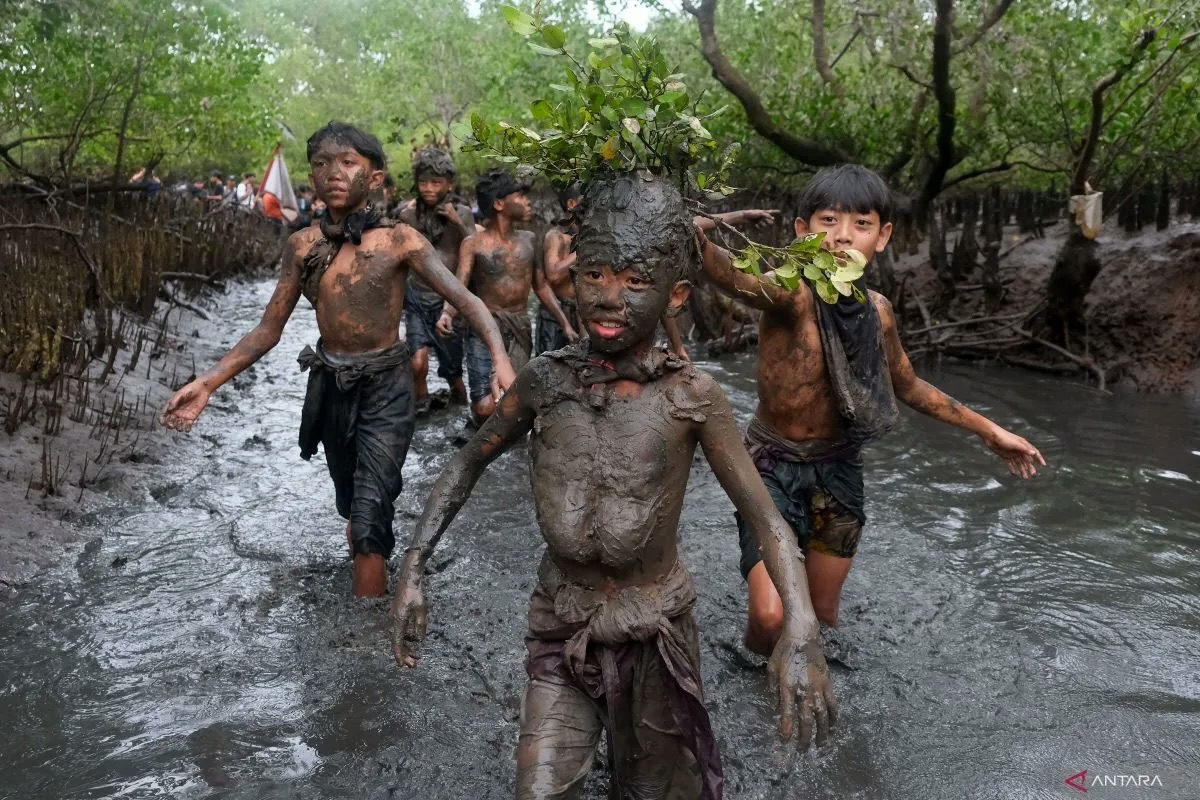
Right after Nyepi, the Day of Silence, another fascinating ritual takes place in Bali — Mebuug-buugan. This is an ancient Balinese ritual that dates back to the island’s pre-Hindu era. It is believed to have its roots in the animist beliefs of Bali’s indigenous people who lived here before Hinduism arrived in the 5th–6th centuries. It is a unique Balinese purification tradition. Originating from ancient customs, it symbolizes the release of negative energy accumulated over the year. The ritual is associated with the ideas of spiritual and physical cleansing, seen as necessary for maintaining harmony with nature and the surrounding world.
Each year, hundreds of residents of Kedonganan village in Badung gather on the streets to smear themselves — and each other — with mud. The process resembles a joyful game: participants cover themselves and those around them with thick black mud, then parade through the streets, marking their transition into a cleansed, renewed state. In contrast to the solemn Nyepi, which involves complete silence and abstention from all activity and fun, Mebuug-buugan is loud and lively, as if closing the old chapter and opening a new one.
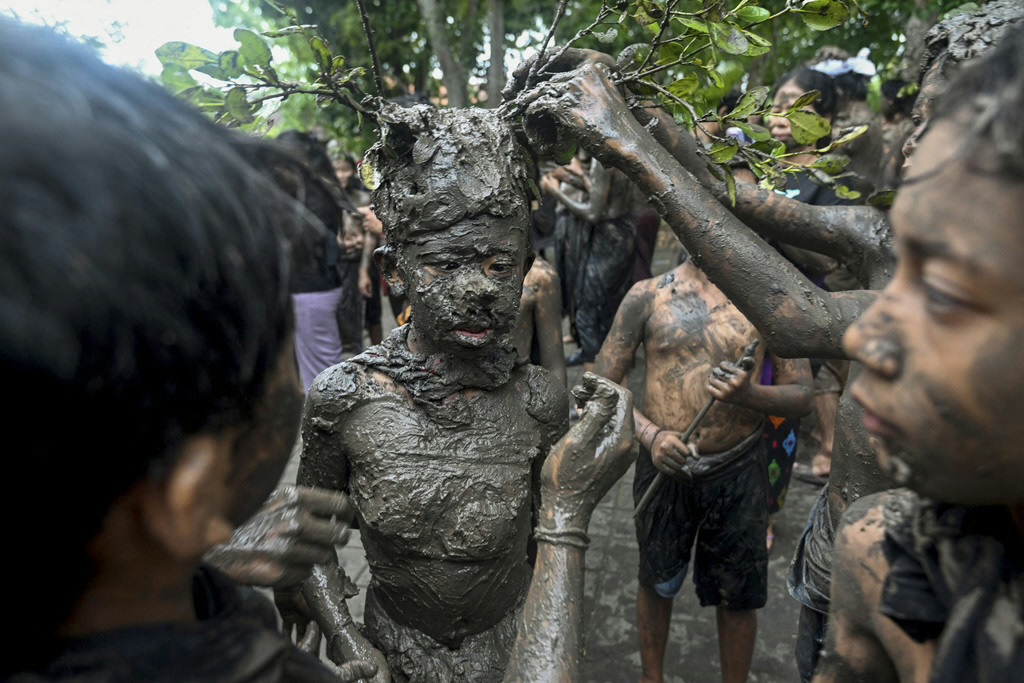
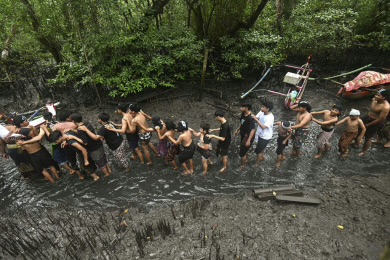
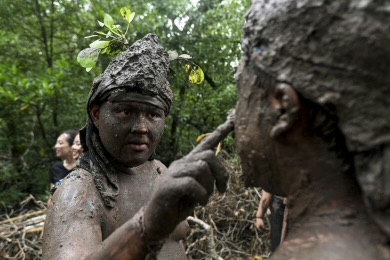
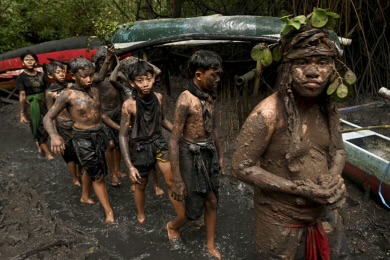
Photo/kumparan.com
The popularity of this tradition is growing each year. In addition to local residents, more and more tourists are joining the celebration, eager to immerse themselves in Balinese culture.
You can add one right now!